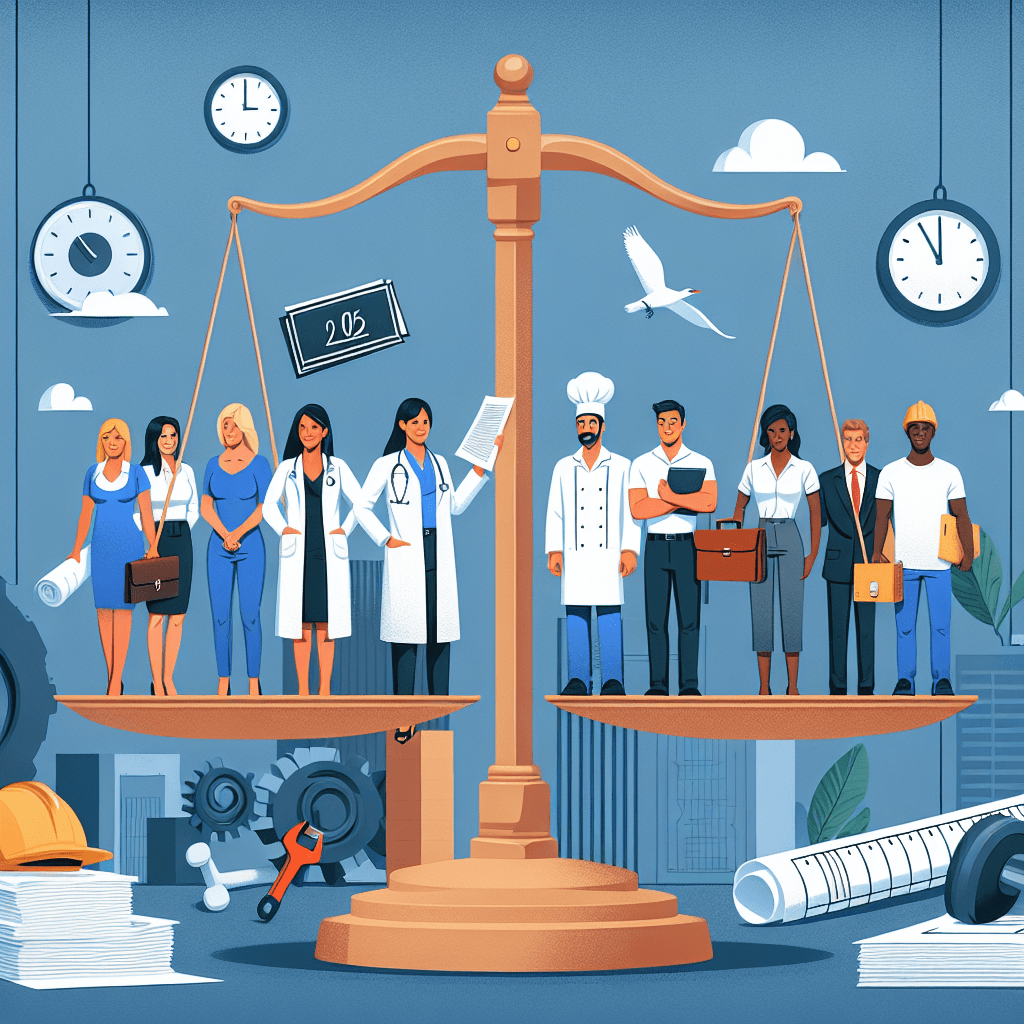Introduction: A New Era of Labor Laws
As we enter 2025, it’s crucial for employers and employees alike to stay informed about the significant updates in labor laws that can reshape the workplace landscape. These changes, aimed at enhancing worker rights and workplace safety, reflect the evolving dynamics of the labor market. In this article, we will explore the key changes you need to be aware of—whether you are an employer needing compliance guidance or an employee seeking to understand your rights.
Understanding the New Paid Leave Policies
One of the most notable changes under the 2025 labor law updates involves the introduction of mandatory paid leave policies. Employers must now provide a standardized amount of paid sick leave. This change aims to reduce the burden on workers who find themselves forced to choose between their health and financial stability.
Increased Minimum Wage Thresholds
Along with paid leave policies, many states are witnessing increased minimum wage thresholds. This regulation varies by location but generally reflects an upward trend as lawmakers aim to keep pace with inflation and the cost of living. Employers must ensure staff salaries are adjusted accordingly to avoid legal repercussions.
Stricter Workplace Safety Regulations
With an increased focus on workplace safety, 2025 will usher in stricter regulations that all businesses must comply with. The Occupational Safety and Health Administration (OSHA) has broadened its guidelines to address emerging workplace hazards. This means regular training and updates for employees to ensure they are equipped to handle risks associated with newer technologies and methods.
Protection Against Workplace Harassment
Legal protections against workplace harassment have also been strengthened. New definitions and policies mandate that businesses implement comprehensive training programs designed to educate employees about their rights. Failure to comply can result in severe penalties and legal ramifications, making it critical for employers to stay ahead of their obligations.
Remote Work Regulations
The rise of remote work has instigated a fresh batch of regulations. New laws dictate that remote work policies must be transparent and accessible to all employees. These policies should clearly outline expectations, work hours, and compensation to ensure everyone is on the same page, reducing disputes and misunderstandings.
Employee Classification Regulations
One of the most complex changes involves the reclassification of self-employed individuals and independent contractors. The updated labor laws introduce new criteria to determine whether a worker is classified as an employee or independent contractor. Misclassification can lead to significant penalties, making compliance critical for businesses that utilize flexible labor arrangements.
Anti-Discrimination Measures
Stronger anti-discrimination laws are poised to be rolled out in 2025. This update emphasizes the necessity for businesses to develop and implement policies that promote fair treatment and equality within the workplace. The new mandates will ensure that employees can report discriminatory behavior without fear of retaliation, creating a more inclusive work environment.
Family Leave Protections
In addition to paid leave, enhanced family leave protections have been introduced. These changes allow for extended time for new parents or those needing to care for family members. Employees can expect more flexible options and increased job security while they take time off for family matters, a necessity in today’s fast-paced world.
Mental Health Support Initiatives
Employers are now required to provide mental health support options for employees. This development highlights the growing recognition of mental health’s importance in the workplace. Companies may need to partner with mental health organizations to offer services that help employees cope with stress and maintain well-being.
Expansion of Workers’ Compensation
The new labor law updates also see an expansion of workers’ compensation benefits. Employees injured on the job will have access to a wider range of medical services and rehabilitation programs. This change is particularly timely, considering the rising number of workplace injuries reported each year.
Clause on Pay Transparency
2025 brings in an era of pay transparency, where employees can expect more openness regarding salary structures within organizations. Employers will be compelled to disclose pay ranges during hiring and will also face scrutiny if discrepancies arise across gender or ethnic lines.
Enhancements to Employee Training Requirements
The labor law updates place an increased emphasis on employee training requirements, particularly for safety and compliance issues. Employers will need to ensure that their training programs are up-to-date and effective in preparing staff for their roles while meeting industry standards.
Support for Gig Economy Workers
As the gig economy continues to grow, new regulations will provide better protections for gig workers. Rights to fair compensation and benefits must now be considered in their working agreements, ensuring that they are treated fairly in this increasingly vital segment of the labor market.
Solidifying Workplace Flexibility
Flexibility in workplace arrangements has become a central focus under the new updates. Employers are encouraged to implement policies that allow for flexible work hours and environments, catering to the diverse needs of today’s workforce while maintaining productivity.
Union Rights Enhancement
Significant changes regarding union rights are on the horizon, aimed at bolstering collective bargaining efforts. Employees will find it easier to organize and voice their concerns through unions, as legislation is designed to protect these rights and encourage fair labor practices.
Emphasis on Diversity and Inclusion Programs
In line with anti-discrimination measures, firms must establish diversity and inclusion programs that resonate with a broader range of employees. The intention is to foster an inclusive workforce that respects various backgrounds, perspectives, and experiences, ultimately benefiting the company culture and performance.
Conclusion: Navigating the Labor Law Landscape
As we embark on this new chapter of labor law updates in 2025, both employers and employees must prioritize staying informed and compliant. The changes not only protect workers’ rights but also enhance the overall work environment, making it healthier and more conducive to productivity. By understanding these essential updates, businesses can ensure they are well-prepared for the future of work, while employees can advocate for their rights confidently. Staying current with these developments is key to navigating the ever-evolving labor landscape.








